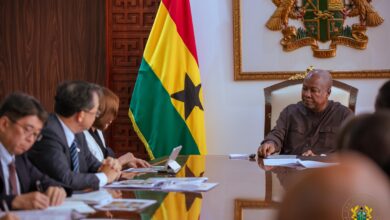
Akim Abuakwa South legislator Samuel Atta Akyea voiced his opposition to the idea that MPs should be forced to vacate their seats simply because they express future political intentions.
In a passionate media encounter, he stressed that MPs should not be treated as “robots” incapable of changing their minds or contemplating their future political paths.
Atta Akyea’s comments followed discussions in Parliament surrounding some MPs who have declared their intention to contest as independent candidates in the upcoming 2024 parliamentary elections.
The private legal practitioner argued that such declarations do not equate to crossing the proverbial political carpet and that MPs should have the freedom to express their future intentions without affecting their current status.
“The issue here is that these MPs are addressing their future intentions. They’ve not said that as of now they want to abandon where they are for any other direction,” Atta Akyea explained, referencing the Second Deputy Speaker’s announcement of future plans.
“Should it affect my current status if I declare my intentions for the future? I’ve not said now I’m crossing to another party.”
For Atta Akyea, it is important to make a clear distinction between present commitments and future aspirations.
“What we are saying now is that they are not crossing the carpet yet. They are not saying that in this Parliament, they were sponsored by the NPP or came in as independents and now want to go to another party or stand as independents.”
He strongly opposed the notion that such future intentions should lead to immediate consequences, such as MPs being stripped of their seats, likening such an approach to reducing MPs to unthinking entities.
“If not, then we are reducing the members of Parliament to robots. They can’t think, they can’t change their minds,” he warned.
Atta Akyea also pointed out that intentions can change, and it is unreasonable to pre-emptively judge MPs based on a future possibility. “What if what they want to do, they change their minds about? Is Parliament going to declare on the thinking and feelings of MPs? That’s the problem I have,” he said, emphasising the need for flexibility in politics and decision-making.
This argument sheds light on a larger issue of parliamentary autonomy and freedom of expression.
Atta Akyea’s perspective challenges the rigidity of some interpretations of parliamentary conduct, promoting the idea that MPs must retain their freedom to think, express intentions, and change course without undue punishment.
Source: Richard Nana Appiah Kubi/Ahotoronline.com



